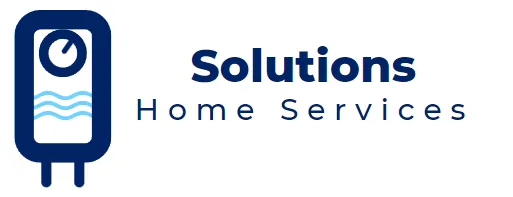Condensing vs Non Condensing Tankless Water Heaters: What are the Differences?
When it comes to tankless water heaters, homeowners in Lehi and the surrounding area often have two options: condensing and non-condensing models. It's crucial to grasp the distinctions between these two types in order to make an informed decision. This article provides a detailed comparison of condensing and non-condensing tankless water heaters, equipping readers with the knowledge to select the ideal heater for their unique living space and needs.

What is a tankless water heater and how does it work?
Water heaters can generally be divided into two primary types: traditional models featuring storage tanks, and tankless designs. Traditional water heaters function by storing a significant volume of water in a tank and maintaining a constant heating temperature. On the other hand, tankless water heaters work differently by heating water instantly as it passes through a heat exchanger, eliminating the necessity for a storage tank. This efficient method of heating not only saves space but also conserves energy.


What is a condensing tankless water heater?
The condensing tankless water heater is a superior and energy-efficient alternative to traditional tankless water heaters. By harnessing waste heat and recycling it, this innovative system effectively heats incoming water. This exceptional process ensures optimal efficiency and minimizes energy wastage, leading to substantial savings on your energy bill. Additionally, the condensing tankless water heater reduces energy consumption, helping you minimize your carbon footprint and make an environmentally conscious decision.

What are the differences: condensing vs non condensing tankless water heaters
Tankless water heaters are a fantastic option when it comes to cutting down on energy expenses. However, it's crucial to grasp the disparity between condensing and non-condensing models. The primary differentiation lies in their approach to handling exhaust gases. Non-condensing models release these gases directly into the atmosphere, whereas condensing models cool them down to the point of condensation, transforming them into water vapor that is subsequently expelled. This unique process makes condensing models remarkably energy-efficient and more effective overall in comparison to their non-condensing counterparts. Despite potentially higher initial costs, condensing models offer substantial long-term savings by significantly reducing energy expenditures.

What are the benefits
of a condensing tankless water heater?
Condensing tankless water heaters offer numerous advantages over non-condensing counterparts:
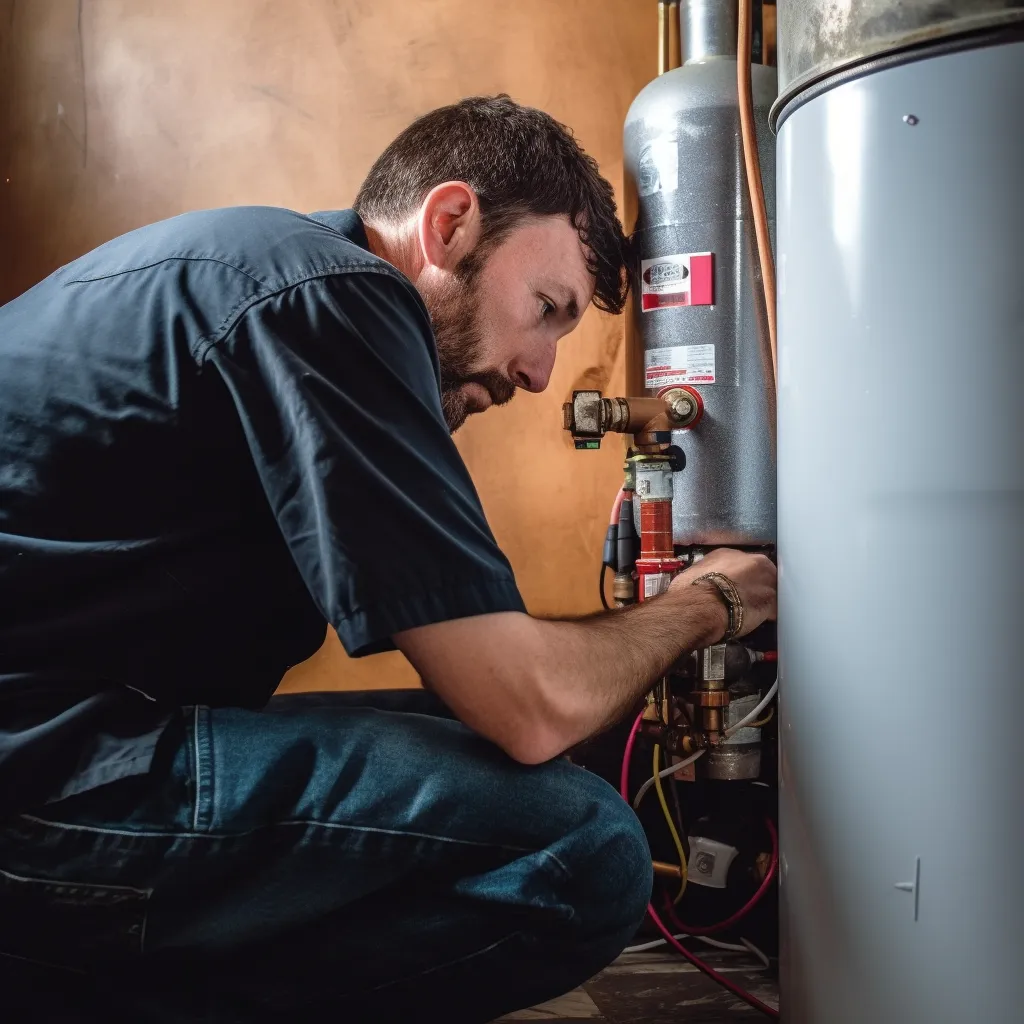
With higher efficiency, they deliver cost savings on utility bills by effectively utilizing waste heat from exhaust gases. This improved efficiency extracts more energy from the fuel source.
Condensing water heaters are eco-friendly as they produce fewer greenhouse gas emissions. This reduction in emissions minimizes the environmental impact and promotes a greener home.
Condensing water heaters boast a longer lifespan compared to non-condensing models.
Their simplified design with fewer components reduces the risk of mechanical failures, ensuring increased reliability and a consistent supply of hot water for an extended period.
What are the disadvantages
of a condensing tankless water heater?
The downsides to condensing tankless water heaters:

These models often come with a higher price tag compared to non-condensing options. However, it's essential to weigh this upfront cost against the potential long-term savings in terms of energy efficiency and reduced utility bills.
It's important to note that condensing models may require more frequent maintenance and have a more complex installation process. This is primarily due to the additional requirements of venting and drainage systems.
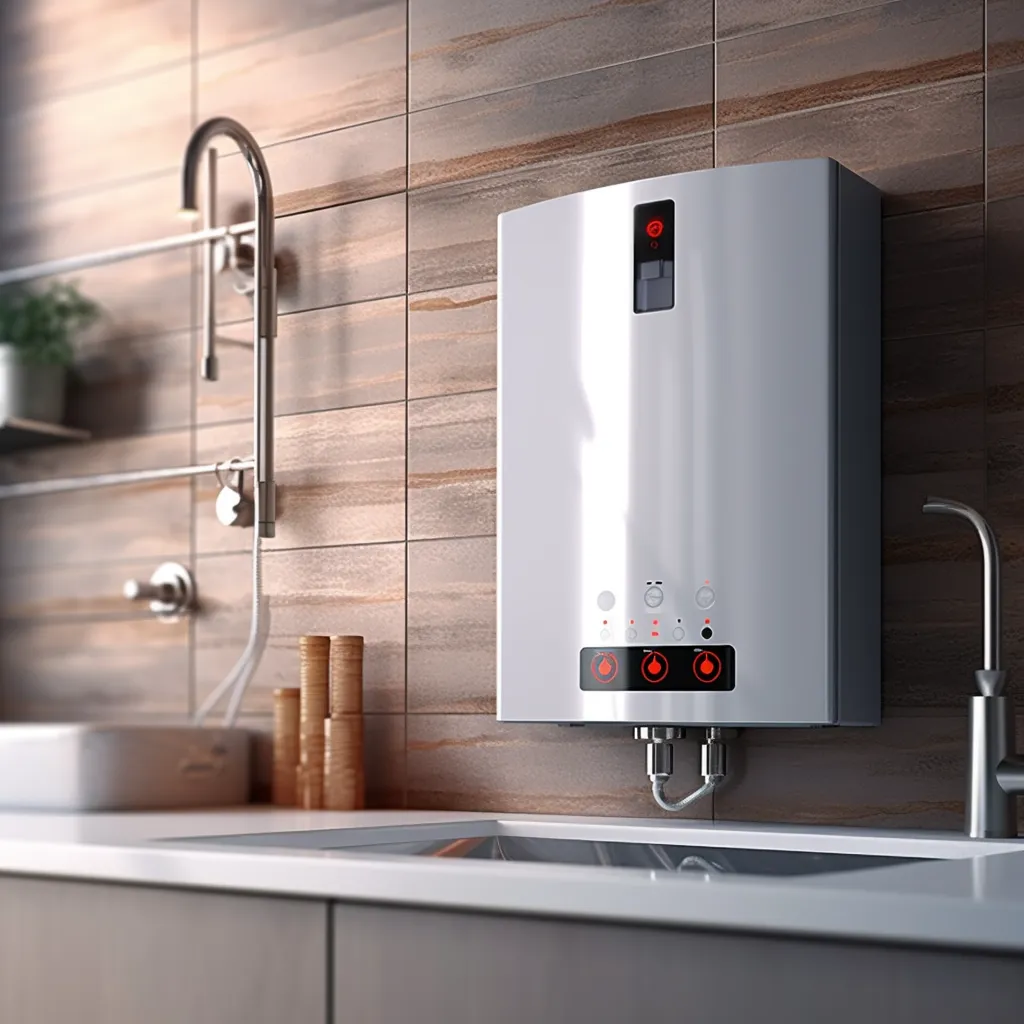

Are condensing tankless water heaters energy-efficient?
Condensing tankless water heaters provide an intelligent and eco-friendly solution for water heating. With an impressive efficiency of up to 96%, they efficiently capture and utilize lost heat from combustion. This saves energy and leads to long-term cost savings by eliminating the heating of excess water. Additionally, these tankless heaters only heat water as required, reducing expenses and minimizing environmental impact. By opting for a condensing tankless water heater, homeowners can enjoy efficient water heating, significant savings, and actively contribute to a greener and more sustainable environment.

Are non condensing tankless water heaters energy-efficient?
Non-condensing tankless water heaters offer an attractive solution for individuals seeking sustainable and budget-friendly water heating options. Although they may not match the energy efficiency of condensing models, they still deliver significant reductions in energy consumption and expenses compared to conventional tank water heaters. Despite not harnessing and utilizing waste heat like condensing units, non-condensing tankless water heaters present an efficient and environmentally friendly substitute to traditional water heaters. Their enhanced energy efficiency and cost savings, as compared to tank-based systems, make them an appealing choice for numerous households.

What is the cost to buy and install a condensing tankless water heater?
When considering condensing tankless water heaters, it's crucial to factor in various costs. These include the home size, specific model, brand, and installation complexity. Seeking advice from a reliable professional is advisable to make an informed decision and select the most suitable option. Although the initial cost may be higher, many homeowners discover that the long-term advantages of condensing tankless water heaters justify the investment. The energy savings and increased efficiency can lead to substantial cost savings over time, making it a worthwhile and eco-friendly choice for efficient water heating.
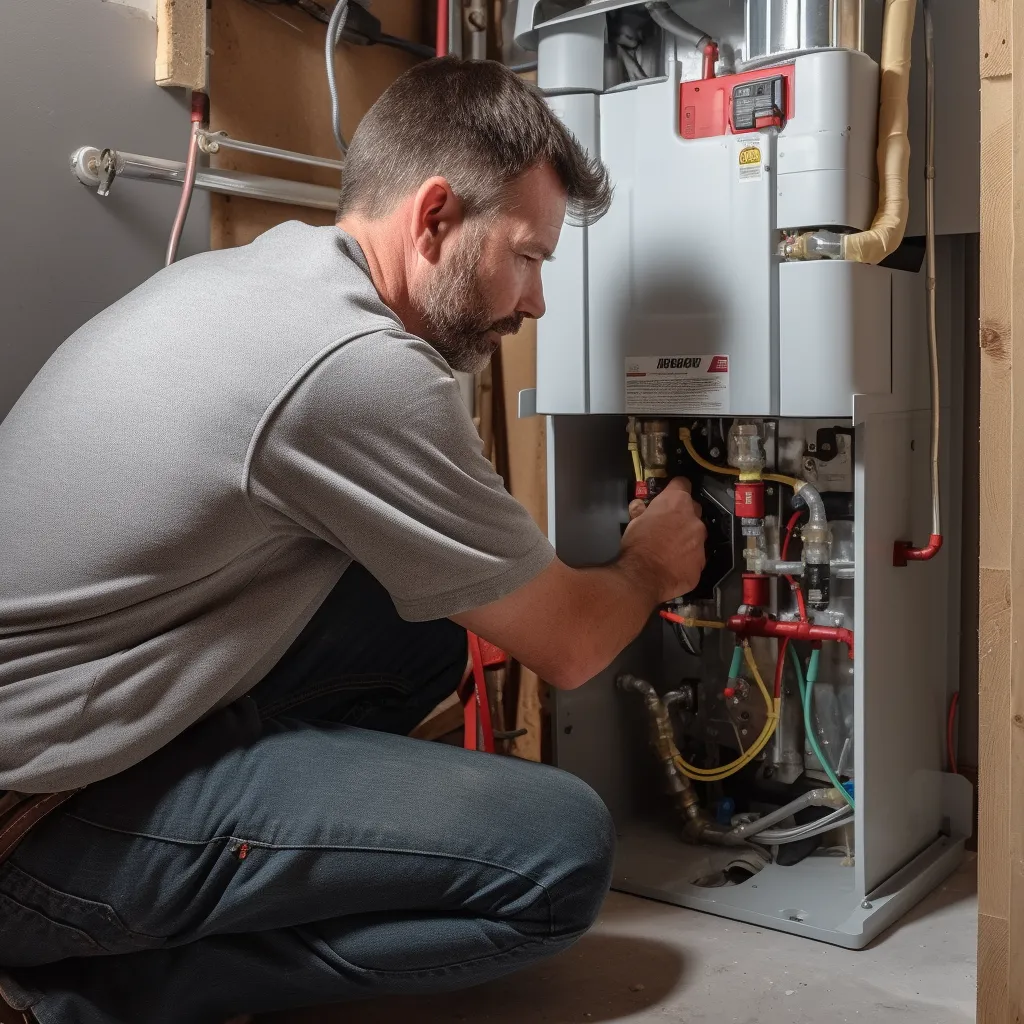
What is the cost to buy and install a non condensing tankless water heater?
Non-condensing tankless water heaters are a popular choice for homeowners seeking reliable and efficient hot water solutions. These innovative units, offered by reputable brands, come in a range of sizes and typically fall within the price range of $1,000 to $3,000. While the initial cost may seem significant, the long-term benefits are well worth it. These water heaters boast a remarkable lifespan, delivering uninterrupted hot water for up to twenty years. Additionally, their sleek and compact design not only saves valuable space but also contributes to a tidy and organized home environment. Experience the lasting performance and space-saving advantages of non-condensing tankless water heaters in your home today.
Condensing tankless water heaters maintenance requirements?
Non-condensing tankless water heaters, offered by well-known brands in various sizes, typically fall within the price range of $1,000 to $3,000. Despite the initial investment, these water heaters deliver long-lasting performance, supplying unlimited hot water for up to two decades. In addition to their sleek and compact design, they effectively save space, reducing clutter within your home. To ensure optimal performance and prevent any issues, it is important to conduct regular maintenance. Here are some key steps to follow:

Verify for leaks or potential issues.
Clean the heat exchanger and burner.
Inspect and replace filters to maintain efficiency.
Test water pressure and temperature for optimal function.
Ensure the venting system is free of debris.
Flush the system regularly to remove sediment buildup.
Check the cleanliness of the air filter.
Regular maintenance is essential to keep your tankless water heaters in top shape and avoid problems like increased energy costs, reduced efficiency, and potential damage. To maintain optimal performance, it is advisable to arrange professional maintenance checks on a regular basis. By being proactive in your maintenance efforts, you can save valuable time and money in the long term while ensuring that your water heater operates smoothly and efficiently.

What are the maintenance requirements
for non condensing tankless water heaters?
Maintaining non-condensing tankless water heaters is crucial for their efficient operation and to prevent potential problems. Similar to condensing units, these heaters require regular upkeep.
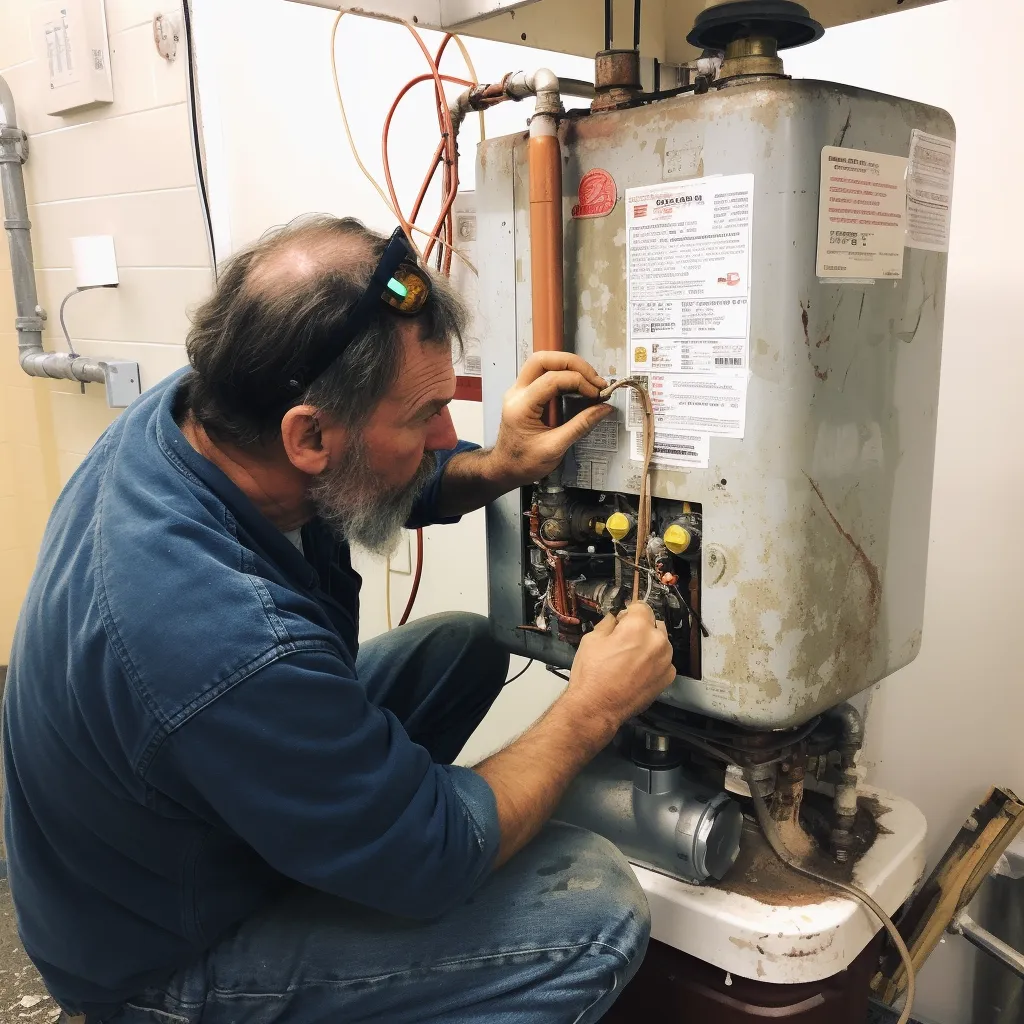
One important maintenance task is flushing the system on a regular basis. This helps eliminate mineral buildup and debris that can hinder the unit's performance.
Another key aspect is checking the unit filters frequently and replacing them as necessary. This ensures proper water flow and helps prevent clogging issues.
Cleaning the heat exchanger and burner is also essential to remove any buildup that could affect efficiency and heat transfer.
To prevent further damage, it is important to inspect the system for malfunctions or leaks and address them promptly.
Verifying the water pressure and temperature is crucial for optimal performance. Ensure they are within the recommended range.
It is essential to keep the vents free from debris to maintain adequate airflow and prevent any ventilation issues.
What to think about when choosing between a
non condensing vs condensing tankless water heater
When deciding between a non-condensing and a condensing tankless water heater, there are key factors to consider:

Non-condensing water heaters are bulkier than condensing ones. If space is limited, it's advisable to choose a condensing water heater.
Installation complexity affects overall cost. Condensing units require a more intricate installation, while non-condensing units offer a straightforward and budget-friendly installation process.
Maintenance frequency varies between non-condensing and condensing tankless water heaters. Non-condensing models require more regular upkeep, so consider your maintenance preferences when making a decision.
Condensing units offer energy efficiency advantages, resulting in long-term savings on utility bills. If energy efficiency is a priority for you, it's recommended to opt for a condensing water heater.
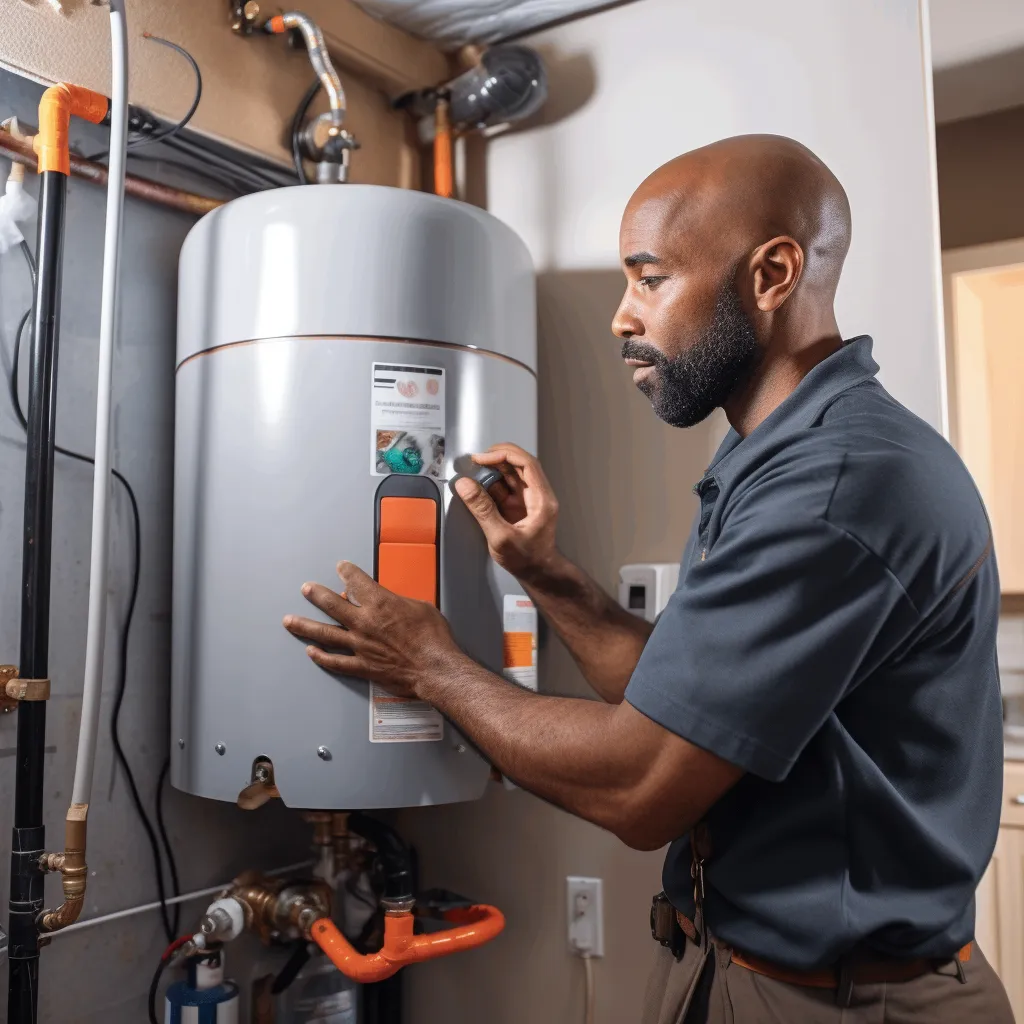
Researching condensing vs non condensing tankless water heaters
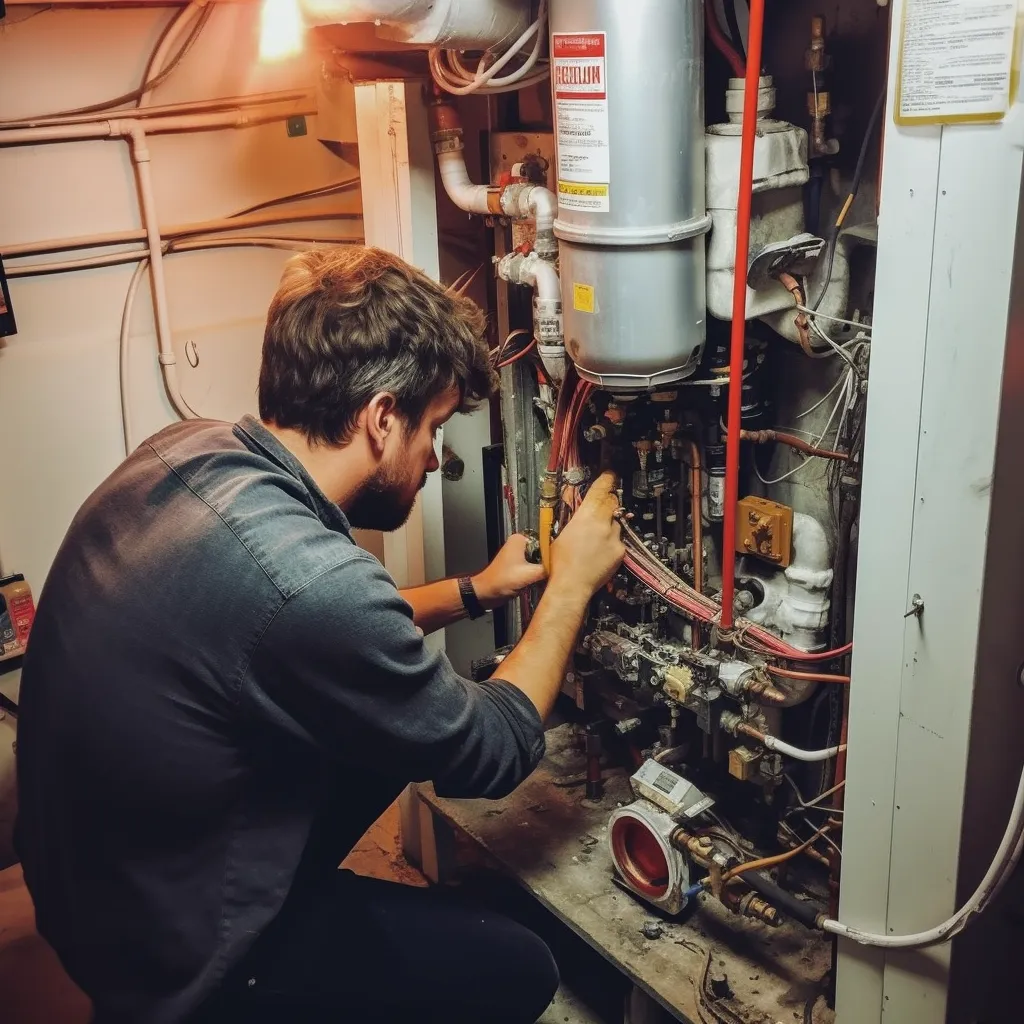
When searching for the right tankless water heater for your home, it's crucial to consider the pros and cons of different types. One important factor to consider is whether to choose a condensing or non-condensing unit. While non-condensing units may seem more affordable at first, they can be inefficient and require more maintenance. On the other hand, condensing tankless water heaters offer cost-effectiveness and can help reduce utility bills. By taking the time to compare your options and selecting the best water heater type, you can enjoy a steady supply of hot water while saving energy.
It's important to note that choosing the perfect tankless water heater type is a personal decision that should involve consulting a licensed professional who understands your home's specific requirements. Their expertise will provide valuable guidance to ensure you make an informed choice that precisely aligns with your home's needs.
Contact Us
GET IN FULL TOUCH
PHONE: (801) 877-1421
EMAIL:
nathan@waterheaterlehi.com
Solutions Home Services
74 W 1625 S, Lehi, UT 84043
